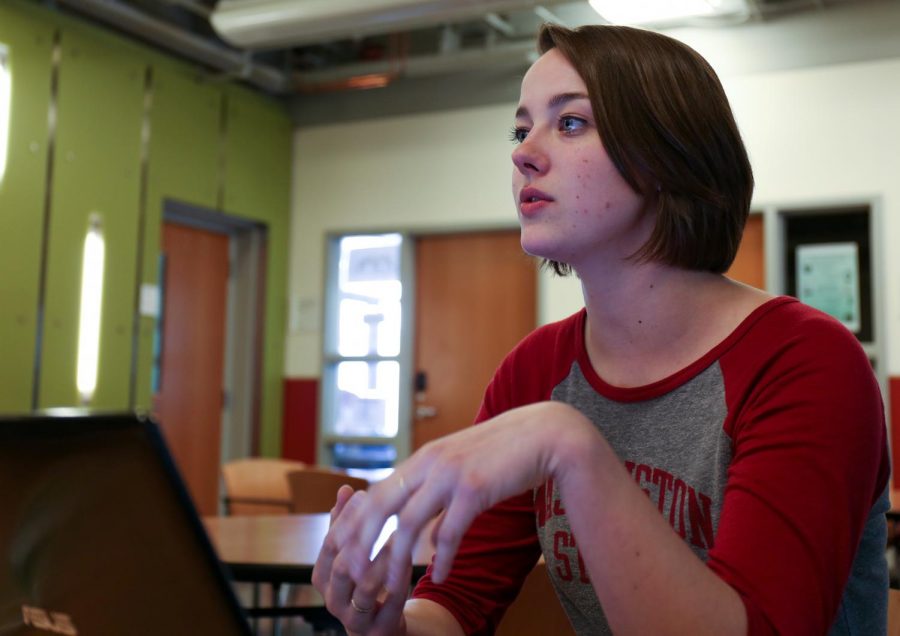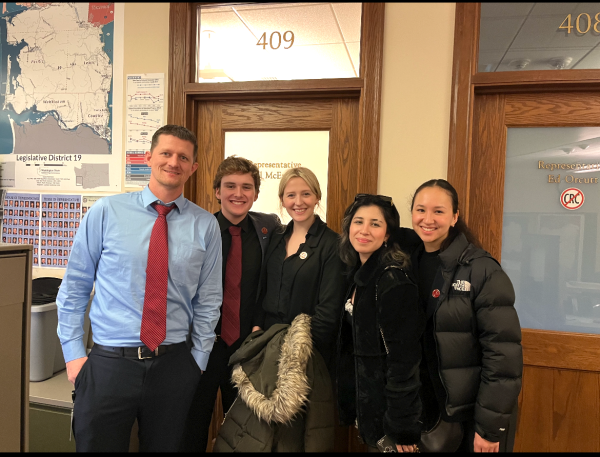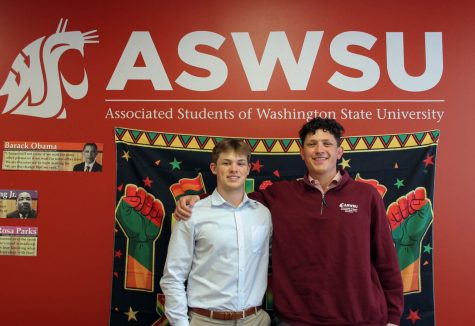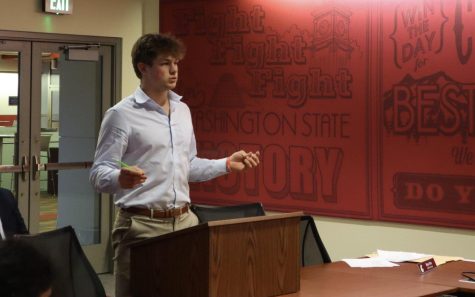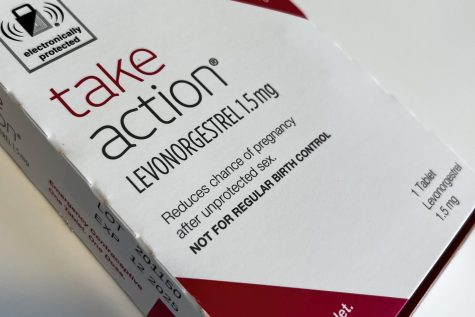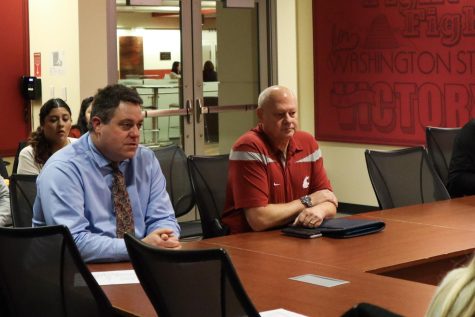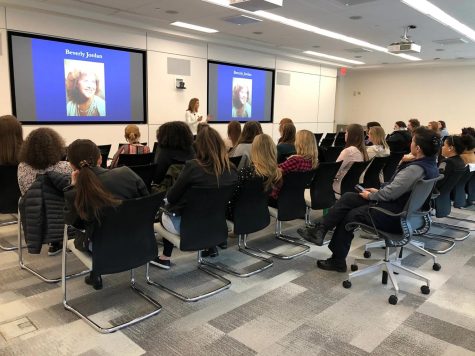ASWSU committee conducts internal review
ASWSU ratified four of six improvement recommendations
ABBY LINNENKOHL | THE DAILY EVERGREEN
Recently re-elected ASWSU CAHNRS Senator, Lindsay Schilperoot, breaks down the internal recommendations.
April 3, 2018
The ASWSU executive team is working to fulfill campaign promises by completing the first internal review of the organization in decades.
ASWSU Vice President Garrett Kalt said the internal review was an opportunity for the organization to reflect on the year and improve.
At the start of their administration, ASWSU President Jordan Frost and Kalt wrote in a message to the student body that they wanted transparency to be a top priority.
In order to organize and gather student input, Kalt said ASWSU created an Internal Review Committee, which consisted of five ASWSU student leaders: Frost, Kalt, Senate Internal Chair Lindsay Schilperoort, Senate Pro Tempore Devon Holze and Committee Squared Chair Alexea Hovren.
This feedback was taken through conversations with the committee chairs themselves, providing a guided discussion for each ASWSU branch, a suggested survey for all ASWSU members, three open forums and two feedback discussions at Committee Squared.
“The internal review is really an opportunity for our association to look at some of our weaknesses,” Kalt said, “but also look at our strengths and celebrate our successes.”
Out of six recommendations, four were passed with majority support of ASWSU members, while two were vetoed. The four recommendations passed were ratified during the last ASWSU Senate meeting.
One of the recommendations included developing the ASWSU Communications Department, which passed with a 49 vote in favor and 16 opposed, with two abstained votes.
Schilperoort said that she thought the communications recommendation was the most important to her as well as other members of ASWSU.
“The biggest thing that ASWSU is lacking in is communication,” Schilperoort said. “We don’t all work together as well as we should. There is a lot of stuff that goes through the cracks.”
This recommendation included expanding the communications team by identifying specific focuses for the deputy directors in the department. Some of these roles included having a person dedicated to creating videos or controlling social media. Schilperoort said this recommendation would allow for committees to better utilize the communications department.
The second recommendation that passed included expanding the ASWSU University Affairs Department with 57 in favor and nine opposed, with two abstained votes.
This recommendation would provide more roles within the University Affairs department through the creation of a deputy director of Student Affairs and a deputy director of Academic Affairs to work under the director of University Affairs.
“University Affairs is where a lot of the real change in ASWSU happens,” Schilperoort said. “On a university level, that person is the main point of contact for a lot of administrators.”
The next recommendation requires each ASWSU branch head to meet once a month, which passed 54 to 14 with one abstained vote.
Those required to meet are the ASWSU president and vice president, Senate leader, Judicial Branch chair, Election Board chair and the programming and service committee chair.
The last recommendation that passed was transitioning service committees into auxiliaries with 44 votes in favor and 10 opposed, with 11 abstained votes.
This recommendation would transition ASWSU KZUU Radio and ASWSU Student Legal Services into an auxiliary group, which means they would be more autonomous and have the freedom to work on projects separate from administrative functions. An example of a current auxiliary group is Cougar Choice Housing, which continues to receive advising and support from ASWSU as well as funding from S&A fees.
The first failed recommendation was the transition of programming committees into chartered RSOs with 14 voting in favor and 52 opposed, with one abstaining.
The change would provide more independence in their programming for future projects. However, the programming committees would be provided with the same resources, financial support and guidance.
“We really thought this was going to solve so many issues like communication and unrest over confirmations,” Schilperoort said. “But when we presented it, it was not perceived in that manner.”
Schilperoort said many members thought the recommendation was meant to kick out the programming committees from ASWSU. She said the way IRC delivered the recommendation was a mistake. If IRC were to do it over, Schilperoort said she would meet with the programming committees individually and talk about the specifics of the recommendation.
The second recommendation that failed was the incorporation of the Judicial Board into the Election Board, with 29 in favor, 26 opposed and eight abstaining.
Recommendations must have two-thirds majority to go into effect.
Without a clear space for the Election Board to work, the IRC suggested the creation of a new position, a deputy chief of the Judicial Board. They would work to oversee the Election Board during their term. Kalt said the recommendation would make ASWSU elections more efficient.
Schilperoort said the main reason the recommendation was vetoed was because the key details were premature and confused many ASWSU members, including herself.
The votes were conducted unofficially by anonymous written ballots during the Cougar Leadership Retreat on Jan. 19, Kalt said, which were then submitted to the IRC.
“The most interesting part [of the internal review process] was hearing the solutions that people had,” Schilperoort said. “That was pretty eye-opening to see how people thought about ASWSU and the ways that they viewed their roles in the organization.”

